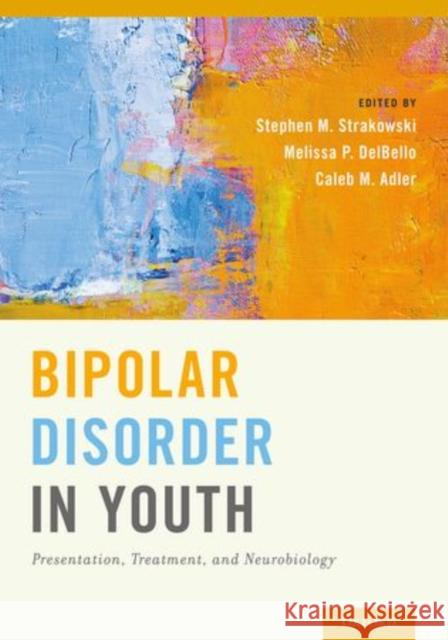Bipolar Disorder in Youth: Presentation, Treatment and Neurobiology » książka
topmenu
Bipolar Disorder in Youth: Presentation, Treatment and Neurobiology
ISBN-13: 9780199985357 / Angielski / Twarda / 2014 / 400 str.
Bipolar disorders affect up to 3% of the world's population and are the 6th leading cause of disability worldwide. The estimated annual costs of bipolar disorder approach $50 billion in the United States, and the associated societal and personal suffering is immeasurable. Bipolar disorder is a lifelong illness that typically begins in mid-adolescence, thereby disrupting healthy developmental processes. It is also a progressive illness, making early intervention even more critical. As the disorder presents differently in youth as it does in adults, considerable controversy exists around the diagnosis in young people.
The neurobiological factors leading to the onset of bipolar disorder reflect abnormalities in adolescent brain development. Bipolar disorder is strongly heritable and therefore, these developmental abnormalities likely represent the culmination of processes that precede the expression of symptoms. Current studies of children who are at risk for bipolar disorder are identifying these processes. Again, controversy exists about how to move these neuroscience gains forward to help affected individuals and, particularly to manage children at risk to delay or prevent the onset or progression of bipolar disorder. With these considerations in mind, Bipolar Disorder in Youth provides a timely, focused review of the diagnosis, treatment, and neurobiology of bipolar disorder in youth. It addresses current controversies and resolves those in which evidence is available. The book is organized into three sections based on these topics to provide comprehensive discussions to aid clinicians managing these individuals in their practices, as well as scientists trying to advance the field. The three editors are widely recognized experts in bipolar disorder, and the authors of each chapter represent international experts in the respective topics. Consequently, this book is the most comprehensive volume available discussing this important population and is a 'must' for the libraries of clinicians and scientists working with bipolar children and adolescents.










